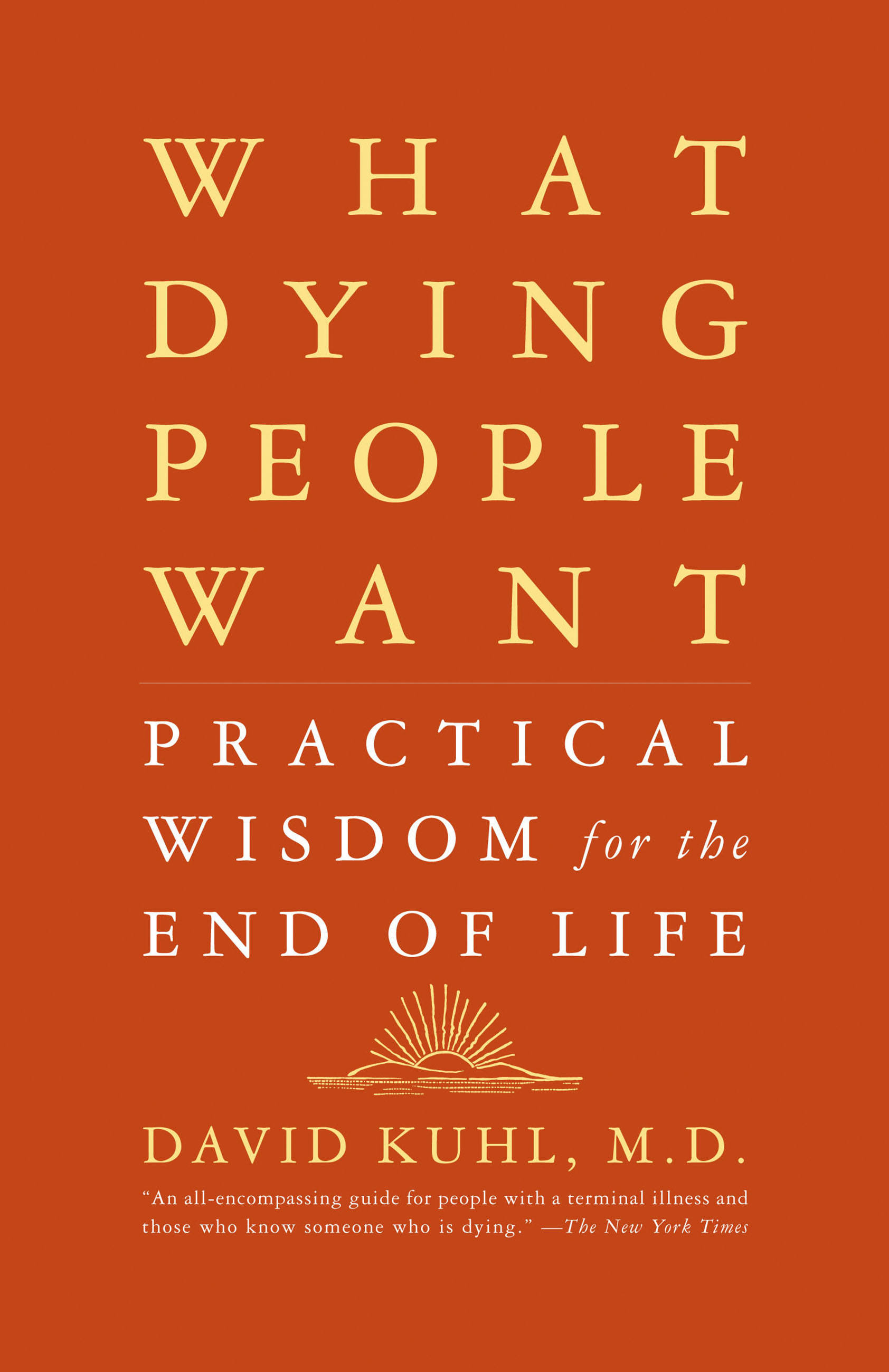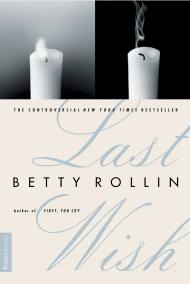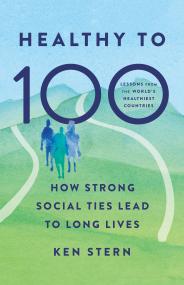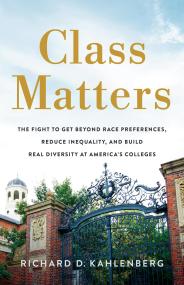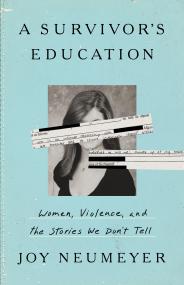By clicking “Accept,” you agree to the use of cookies and similar technologies on your device as set forth in our Cookie Policy and our Privacy Policy. Please note that certain cookies are essential for this website to function properly and do not require user consent to be deployed.
What Dying People Want
Practical Wisdom For The End Of Life
Contributors
By David Kuhl
Formats and Prices
- On Sale
- Jul 10, 2003
- Page Count
- 352 pages
- Publisher
- PublicAffairs
- ISBN-13
- 9781586481971
Price
$16.99Price
$22.49 CADFormat
Format:
- Trade Paperback $16.99 $22.49 CAD
- ebook $11.99
This item is a preorder. Your payment method will be charged immediately, and the product is expected to ship on or around July 10, 2003. This date is subject to change due to shipping delays beyond our control.
Buy from Other Retailers:
Facing death results in more fear and anxiety than any other human experience. Though much has been done to address the physical pain suffered by those with a terminal illness, Western medicine has been slow to understand and alleviate the psychological and spiritual distress that comes with the knowledge of death. In What Dying People Want, Dr. David Kuhl begins to bridge that gap by addressing end-of-life realities–practical and emotional–through his own experiences as a doctor and through the words and experiences of people who knew that they were dying.
Dr. Kuhl presents ways of finding new life in the process of dying, understanding the inner reality of living with a terminal illness, and addressing the fear of pain, as well as pain itself. He also offers concrete guidance on how to enhance doctor/patient relationships and hold family meetings, and provides an introduction to the process of life review.
It is possible to find meaning and peace in the face of death. What Dying People Want “helps us learn to view the knowledge of death as a gift, not a curse.” (New Times)
Dr. Kuhl presents ways of finding new life in the process of dying, understanding the inner reality of living with a terminal illness, and addressing the fear of pain, as well as pain itself. He also offers concrete guidance on how to enhance doctor/patient relationships and hold family meetings, and provides an introduction to the process of life review.
It is possible to find meaning and peace in the face of death. What Dying People Want “helps us learn to view the knowledge of death as a gift, not a curse.” (New Times)
Newsletter Signup
By clicking ‘Sign Up,’ I acknowledge that I have read and agree to Hachette Book Group’s Privacy Policy and Terms of Use

